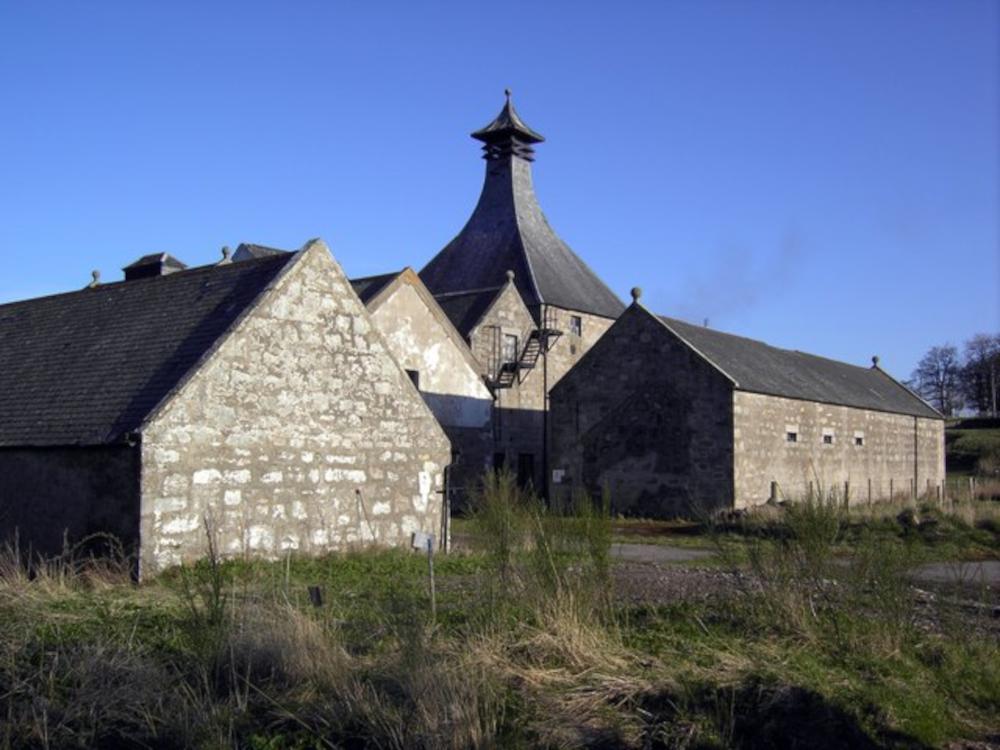
Clynelish whisky distillery
Contents
On the way to the far north of Scotland and the counties of Sutherland and Caithness lies the Clynelish distillery. Few whisky distilleries are as far flung into the rugged northern Highlands of Scotland. Clynelish is close to the coastal village of Brora, which is also the name of it’s more famous sister distillery.
Clynelish means “slope of the garden” in Gaelic and is pronounced “Cleinlish”. After Clynelish is one of the key malts in Johnny Walker Blended Scotch, but the parent company Diageo never really put the distillery in the spotlight, and it has largely gone overlooked by the average consumer. Unjustifiably so as Clynelish bottle an impressive, layered and well rounded single malt with a beguiling character. In reflection this it is perhaps good for us connoisseurs that Clynelish has escaped the masses so far.
Clynelish Distillery
This distillery is located in the northeastern part of the country in a village called Brora. Let yourself be guided through the distillery and taste the slightly fruity Highland Single Malt. Since the Clynelish Distillery is located in a very popular golf and fishing region, you can combine your hobby with a whisky tasting. Interestingly the distillery buildings are an exact replica of the Caol Ila distillery on Islay.
How does Clynelish single malt taste?
Clynelish’s whisky features aromas of candle wax, baked apples, tangerines and floral notes of heather. Aromas of seaweed and spicy notes indicate the proximity to the coast, on the palate Clynelish is surprisingly oily. A remarkably complex malt whisky for 14 years.
How is Clynelish whisky produced?
The Clynelish Distillery produces up to 4.8 million liters of alcohol annually with a total of six (steam-heated) stills. The water comes from the Clynemilton Burn. The malt is purchased from the Glen Ord malt house. The mash tun (12.5 t) is made of stainless steel and there are eight (58,600 litre) Douglas fir washbacks (fermentation tanks). Distillation takes place in three wash stills (17,000 l each) and three spirit stills (19,000 l each).
History
The history of the Clynelish distillery goes hand in hand with that of Brora. The history of these two distilleries goes back to 1819. That year, George Granville Levison-Gower, who later became the Duke of Sutherland, founded the Clynelish Distillery. In 1930 the distillery was taken over by DCL, Diageo’s predecessor organization.
This original distillery (called Clynelish A) was supplemented by a new building (Clynelish B) on the same site in 1967. A year later the decision was made to close the old distillery at short notice. In April 1969, Clynelish A went back into service. As a result, a malt called Clynelish was produced in two distilleries for a while. This of course led to some confusion, which is why due to legislative change it was decided to rename the Clynelish A distillery to Brora Distillery.
Until 1983 Brora and Clynelish worked side by side, each producing a malt in their own style. In 1983 Brora was finally closed a victim of the ’80s surplus and economic downturn. Until recently, the Brora distillery buildings were used by Clynelish as warehouses. Due to fanbase attracted by older Brora releases and demand from collectors and whisky lovers, Brora distillery is being reestablished.
Clynelish factsheet
| Name | Pronounced | AKA | Region |
|---|---|---|---|
| Clynelish | cline*leash | Highlands | |
| Country of Origin | Status | Active | Whisky Type |
| Scotland | Active | 1872 - Present | Malt |
| Website | Tours Available | Owned by | Parent Group |
| Clynelish | Tour Link | Diageo |
Clynelish Timeline:
1819: The Clynelish Distilllery is founded in the small town of Brora
1827: The 1st licensee, James Harper, is robbed and John Matteson takes control of the distillery
1846: The distillery is sold to the George Lawson & Sons company
1896: John Ainslie & Heilbron take over Clynelish
1912: The DCL gains control of Clynelish with James Risk
1931: The distillery is shut down
1960: Production starts again for the first time
1967: A new distillery built directly across the street behind production under the name of Clynelish creating a lot of confusion for the future
1968: The original distillery is closed
1969: The mothballed Original Clynelish Distillery is reopening under the name Brora
1983: In the great crisis of the 1980s, Brora is closed again
1990: Licensed to United Malt & Grain Distillers Ltd. (UMGD)
2002: The Clynelish 14 year old is launched
2014: Current owner Diageo announces a £ 30 million investment in the distillery
Interesting Clynelish links:
Previous
Next

